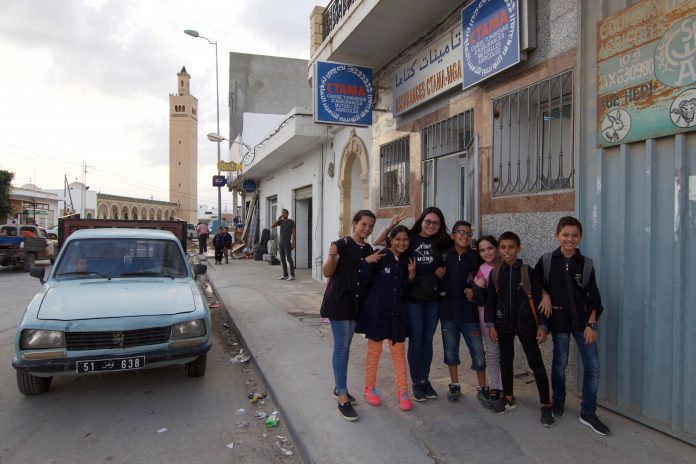Algeria is to introduce English lessons in primary schools, President Abdelmadjid Tebboune has announced. The former French colony has insisted all schools teach in Arabic since the 1960s, although since 2016 an exception was introduced for Tamazight, the language spoken by the Berber people who make up over a quarter of the population.
Could this be a new growth market?
The short answer is probably, providing you’re a language school franchisor looking for an overseas operation or if you’re willing to travel and are a native speaker teacher or French-English bilingual. There is also likely to be a good market for English medium degrees, especially at Master’s level, because academic study in English is seen as increasing job prospects in a country with a very high rate of graduate unemployment.
In the case of language travel, however, only short-haul destinations like Malta and Ireland with work rights for language students are poised to benefit.
Although the UK press are likely to hail this as a victory for the English language, French, which is taught as a foreign language in schools, but used as the language of instruction in many university departments, is likely to remain the second language.
As Algerian Professor of English Hyat Messekher points out in a recent LSE webinar, this is not the first promise of primary English. An attempt to introduce English in primary schools in 1993 failed, because parents were asked to choose between English and French, and most opted for French.
“Parent’s wanted to make sure they could support and follow their kids,” Messekher explains. “Also, they knew there was no proper plan, no books and no teacher training.”
This time the push towards English is being led by university students, faculty and non-academic staff. Messekher sees this student demand as fuelling the rapid growth of the local language school market and the calls for universities to run intensive English classes.
This may be good news for pathway programmes. Indeed, NCUK, the university consortium which offers foundation-year courses, is already offering its courses through a private sector partner in Algiers. The Algerian school has a franchise agreement with another NCUK partner, British Study Centres, which run the NCUK foundation course in London.
And it is not just Algeria. NCUK’s newest partner-run centre is in nearby Morocco, another Francophone North Africa country which recently adopted primary English.
At first glance, the two have a lot in common, and not just because of their colonial past. They are both upper-middle- income countries, according to the OECD, and both have a GDP per capita of around US$11,000 a year, putting them between Romania and Bulgaria in terms of economic strength.
Further, they share a focus on education, something that is perhaps less often found in some other Arabic-speaking countries.
There is, however, one big difference between these two North African countries: their attitude to private education.
One in seven of all Moroccan children are enrolled in private primary and secondary schools, most of them teaching bilingually in Arabic and French. The young learners market for English has been mainly catered for by the private school sector, which increasingly offers intensive English language in French Arabic, primary with trilingual programmes introduced at secondary level.
Less than 2% of Algerian children are enrolled in private school and, with the strict laws on Arabic medium education, a boom in English medium or bilingual schools is unlikely to emerge. Even CLIL may be hard to introduce.
And, since there is a shortage of local English teachers, English graduates are too in demand to remain in the classroom for long, so state school provision may be poor.
All this is likely to increase the demand for young learners programmes in language schools, perhaps delivered, as they often are outside Europe, as after-school classes which take place in the classrooms of their regular mainstream schools.
Native speaker teachers are likely to be in demand, as are bilinguals who also speak French or Arabic or both. Currently, levels of pay are attractive – the same or a little more than Spain and Italy, but in countries with much lower costs of living.
In the short term the biggest market is likely to be students aiming for English medium universities and the biggest beneficiaries will be the local private language schools. Remember that for Algeria, the aim is to achieve multilingualism, not to replace one colonial language with another.
As Hyat Messekher puts it: “We have to depoliticise the language aspect. It is not to choose one language at the expense of another, or add English and subtract other languages.”
And, she emphasises, it will take time. “The environment for developing English is very favourable, but the ecosystem is not ready yet.”







